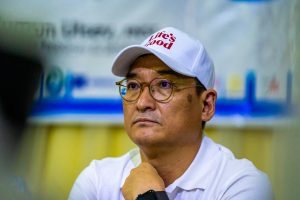PwC:FG Must Unlock Dead Assets, Others To Shaping Economy in 2022

PwC
Analyst, who is the Financial Services Leader (FS) and Chief economist at PwC Nigeria, Mr. Andrew Nevin has expressed that the federal government must unlock dead assets across the country that are not producing returns , and also focus on service export growth.
Highlighting others factors, Nevin noted that despite the positive news emanating from Nigeria’s economy lately, the country is not getting enough investment.
According to him: “So it is an urgent question for Central Bank government. This is the biggest economy opportunities in Africa and the question is why Nigerians not investing and why those in the diaspora are not investing.”
Speaking at the Nairametrics Economic Outlook webinar, themed, “Your Money, The Economy and Government Policies.” during the weekend, he maintained that the federal government has a lot of work to do as regards ease of doing business.
“There are some forces opposing the business environment progress. For me, there have been some progress in the last five years and I wanted to think we have made some progress but we are not there,” he said.
He expressed that PwC had advocated for unification of currency as investors are confused over different exchanges, stressing that it has impacted negatively on investment and Nigeria needs private sector investment.
He noted that Nigeria is ahead of the rest of the world’s economy in understanding that GDP do not translate into wellbeing, disclosing that, “What really captures us is the shifting from GDP lens to SDG lens.”
He said that the federal government should also seek to move more sectors from informal to formal, and also improve invest ratio by GDP.
He stated that what PwC Nigeria thinks is important for Nigeria’s economy is unlocking the value of dead assets, stating that, “Nigeria is a very wealthy country, with enormous amounts of assets that are not producing returns.”
He noted that many of those assets are in real estate, which could be beneficial for the government also. For example, Kaduna state is implementing property tax, that will enable the state to solve its IGR problem. Assets like the national theatre and the three refineries that are not only dead but producing zero returns.
Another theme he added is the power of the diaspora, revealing that by 2019 they were sending $25 billion to Nigeria and supporting millions, citing Edo state where 10per cent of families benefit from diaspora remittances.
“[As] shown in India, over the decades having a strong diaspora is important for the economy,” he noted.
“I believe the remittances are going up, just people using more informal systems to send money,” he said.
Another factor he opined that can shape the economy is driving export growth through services, people joining global value chains, outsourcing, and it’s happening at every level in Nigeria from banking to outsourcing, fintech, and also the cultural industry, including afrobeat.
He said that stakeholders and foreign investors would like to see Nigeria focus on export services, partly because the industry is not very good.
“Nigeria needs to get movement from the informal to the formal sector, lots of pockets of economic activity not covered by statistics, the problem with the informal sector is that productivity is low because by definition it’s hard to invest a significant amount of money into it.
“So the [issue] is how [to] entice people to move, from the informal to formal,” Nevin said.
Earlier speaker at the webinar, Partner, Ta, Regulatory & People Service at KPMG, Mr. Olufemi Babem highlighted increased taxes imposed by the Federal Government through the Finance Act with effective rate of tax on corporate profits by 0.6 per cent.
Other highlights expected in the fiscal changes on business profits in 2022 include increase in effective rate of tax broadening the corporate income tax base for foreign companies providing services to Nigerian beneficiaries; introduction of deemed tax for foreign providers of digital goods and services and enactment/enforcement of various levies by State Governments.
During the session titled “Economic Impact of Government’s Tax Revenue Drive”, he said that key expected fiscal changes in the act for investment include Taxation of capital gains on disposal of shares and exemption of dividend and rental incomes received by Unit Trusts, (including Real Estate Investment Trusts) from corporate tax.
He stated that with the percentage of deficit to the total 2022 budget expected at 37per cent, the FG’s focus would be on “tax revenue”, stating that Nigeria expanded the Finance Act to expend tax revenues.
He stated that the potential impact of tax drive to include economy competitiveness, increased government revenue, business competitiveness, increased government revenue and target GDP growth.
Commenting on the possible impact of taxes on investment into the country, the Head, Fixed income, currencies & treasury FBNQuest Merchant Bank, Adetoun Dosunmu expressed that the foreign exchange liquidity is a major setback on investment inflow into the economy.
She advised investors to consider mutual funds that are still tax exempt by the government.








